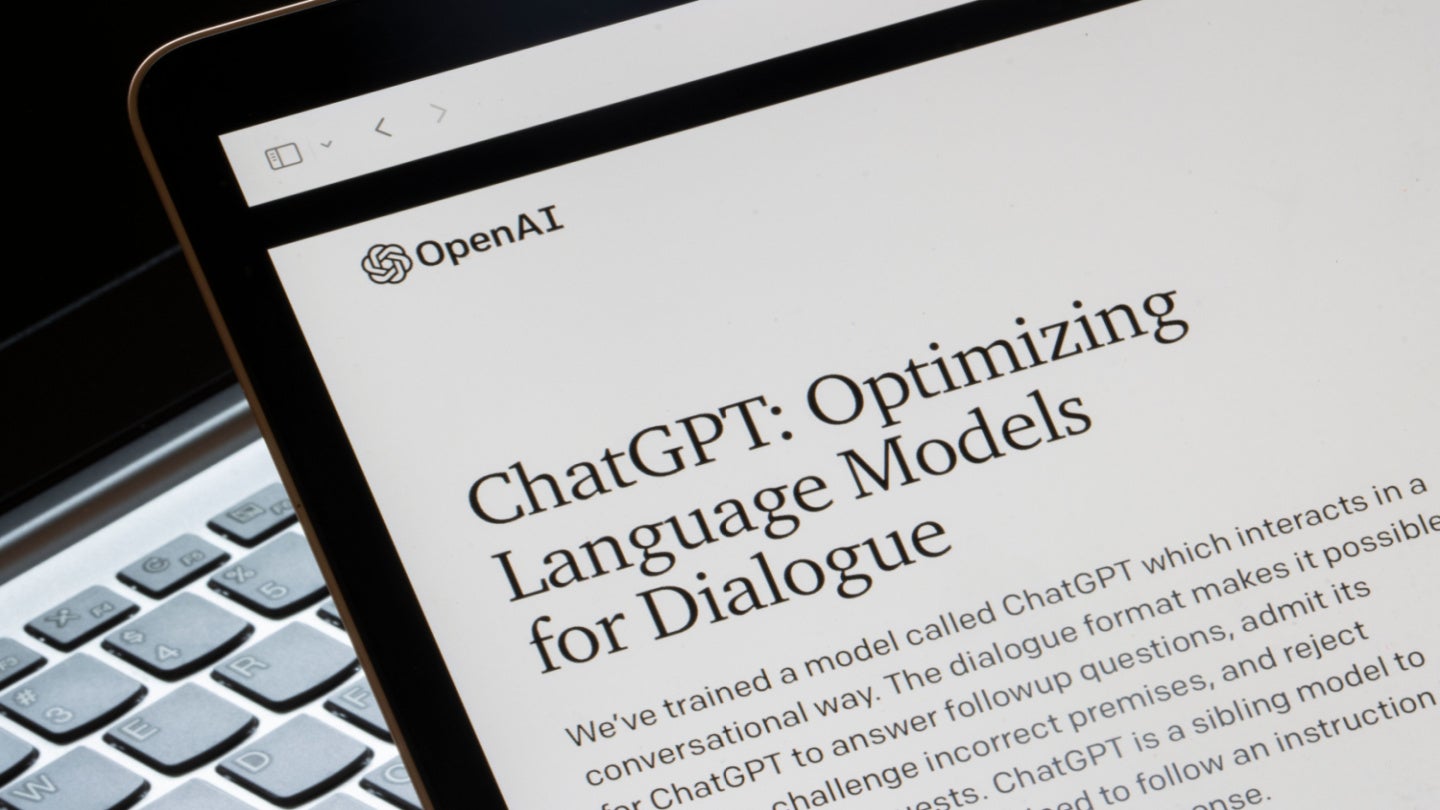ChatGPT is a state-of-the-art natural language model developed by OpenAI that uses deep learning to generate human-like text. Based upon OpenAI’s Generative Pre-Trained Transformer 3 (GPT-3) technology, ChatGPT has been refined specifically for use in conversational language generation.
At the tail end of 2022, ChatGPT received a huge amount of media coverage, with people using the chatbot to compose poetry, students cheating on essays, and companies contemplating how they could use it to streamline work. Many simply used the chatbot to answer questions they would normally pose to search engines such as Google. Quickly, people began asking “Could ChatGPT replace Google?”
ChatGPT is not a threat to Google’s search engine supremacy (for now)
Where search engines like Google are designed to index, rank, and retrieve information on the internet, ChatGPT’s primary purpose is to generate conversational text. Indeed, ChatGPT cannot access the internet in its current form, nor can it access any information more recent than 2021, the cut-off date of its training data.
Although trained on a vast dataset of resources such as books, articles, and websites, ChatGPT has some distinct limitations. Firstly, its responses are limited to the information that was available within its training data. Any query that falls beyond that scope will not generate a response. Secondly, ChatGPT can confidently deliver misinformed or biased responses, reflecting the bias in the human-generated content of its training data.
As a result, ChatGPT does not directly threaten Google’s dominion over the search engine industry. However, integration of ChatGPT into an existing search engine would yield significant advantages.
Microsoft’s close relationship with OpenAI
In January 2023, Microsoft confirmed a ‘multibillion-dollar investment’ in OpenAI, the company that created DALL·E 2 and ChatGPT. The deal signals an increasing level of collaboration between the two companies. The specifics of the deal are yet to be confirmed, but rumors valued it in the $10 billion ballpark. Microsoft had previously invested $3 billion in OpenAI, which licensed its GPT-3 technology to Microsoft as part of the deal.

US Tariffs are shifting - will you react or anticipate?
Don’t let policy changes catch you off guard. Stay proactive with real-time data and expert analysis.
By GlobalDataGiven their close relationship, it is highly likely that ChatGPT’s functionality will be integrated into Microsoft’s Bing search engine in the future. Integration would improve search accuracy, offer deeper personalization, and create more intuitive user experiences by remembering conversations and better interpreting complex search queries.
But this would still not be enough to dethrone Google. Google has an immense user base and a wide variety of product offerings. Although its exact user numbers are not disclosed, it is thought to be in the billions. Estimates by StatCounter.com have suggested that Google controls approximately 92% of the cross-platform search market share. Google itself is not a complacent company and is also a leader in the field of artificial intelligence. Over the last three years, Google has invested $100 billion into AI research and development through various initiatives, including its DeepMind subsidiary. Google is also developing its own natural language processor, Google LaMDA, and text-to-image generator, Google Muse. When completed, Google LaMDA and Muse could rival OpenAI’s ChatGPT and DALL·E 2.









